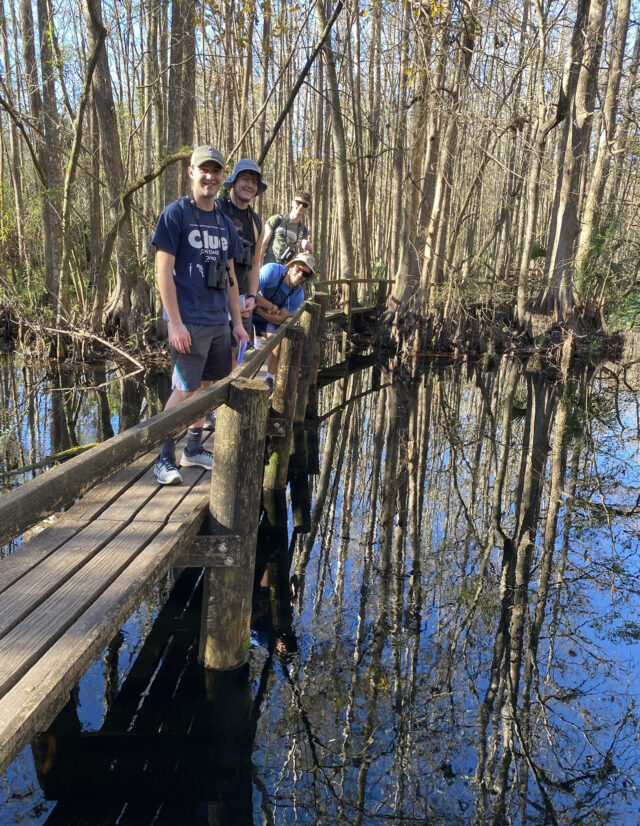Subtropic Ecology Class Brings Learning to Life in Florida

While many Clarke students had snowy days ahead as part of their winter breaks, Biology major Parker Ostrander ’23 headed to Florida as part of the Subtropic Ecology class trip.
Over the course of 10 days, Parker and three of his classmates traveled with Professor of Biology Andrea Bixler, Ph.D., on a tour around the Sunshine State, visiting Everglades National Park, camping and hiking in five different state parks and exploring a diverse array of ecosystems. They observed everything from green moray eels and dolphins to ospreys and scrubjays, a threatened species of bird. For Parker, it was hard to pick just one highlight.
“Every day we observed something different. One day while hiking, we checked out the ‘river of grass’, the only place in the United States where you can see crocodiles and alligators in the same area,” Parker said. “Another day we went snorkeling, which after getting used to breathing underwater, was one of the coolest things I’ve ever done. I was feet away from a couple of barracuda that looked like they were a little too hungry for my comfort.”
As part of the trip, Professor Bixler guided Parker and his classmates on how to take accurate and descriptive field notes and led lively discussions on the different ecosystems being observed. Parker also got to see theories and topics from class on display in the natural world.
“In Ecology, I had previously learned about island dwarfism, where animals get smaller when isolated on an island, and we were able to see that theory in action when we saw the key deer in the Florida Keys,” Parker said. “These deer are basically just white-tailed deer that were isolated on the islands and are much smaller than normal white-tailed deer because of that.”
The experiences Parker and his classmates shared in Florida not only bring previous lessons to life but will prepare them for more intensive coursework on subtropic ecology this spring, as well as life after college.
This experience gave me a more hands-on understanding of the content we’ll be covering in this course. This type of learning works best for me because it sticks better in my memory and makes it easy to relate to.
“It also gave me some insight into things like working at a biological field station” Parker said. “With my minors in Chemistry and Psychology, I’ve been contemplating going into ecology or conservation biology after graduation, so this field experience is very important. Trips like this can help someone discover a love for something they didn’t think they had before.”
